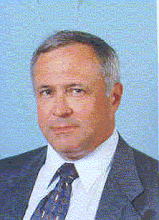Analysts Expect Close Vote on Montenegro Independence
http://www.seeurope.net/en/Story.php?StoryID=57902&LangID=1
2006-03-10 15:35:32
Political parties in Montenegro have accepted European Union guidelines for a May 21 referendum on full independence and an end of the territory's loose link with Serbia, its much larger neighbor. Woman walks by billboard propagating Montenegro's referendum on independence For independence to be internationally accepted, 55 percent of those voting in the referendum must vote yes for independence.
In addition 50 percent of eligible voters must cast ballots. Serbian Prime Minister Vojislav Kostunica says that while he backs a continuation of the union with Montenegro, Serbia will accept the decision of the Montenegrin people. Vladimir Gligorov, a Balkans expert at Vienna's Institute for International Economics, says the way the case for independence is presented will be crucial to the outcome. "If it [the case for independence] is presented right, they could get even more than 55 percent," said Mr. Gligorov. "If it is presented badly, or if something bad is done or there are political shocks, as can always happen, you could get the other result." Gligorov says a "no" vote would resolve nothing, because pro-independence politicians would continue to complain about Serbian domination.
A "no" vote, he says, would result in a prolonged period of political agony. Montenegro, a mountainous territory with a short, but stunning coastline on the Adriatic, has a population of only 600,000 people. The Serbian capital Belgrade has a much larger population. Montenegrins and Serbs use the same language and share the orthodox faith. Opinion surveys show that independence is favored by perhaps 50 to 55 percent of Montenegrins.
The current link between Serbia and Montenegro was developed only three years ago, in large measure by European Union diplomatic chief Janvier Solana, who favors its continuation. Serbia and Montenegro were the last constituent parts of the old Yugoslavia, which collapsed amid violent conflict in the 1990s. Montenegro has widespread autonomy and uses the euro currency instead of the Serbian dinar. Source: VOA News
2006-03-10 15:35:32
Political parties in Montenegro have accepted European Union guidelines for a May 21 referendum on full independence and an end of the territory's loose link with Serbia, its much larger neighbor. Woman walks by billboard propagating Montenegro's referendum on independence For independence to be internationally accepted, 55 percent of those voting in the referendum must vote yes for independence.
In addition 50 percent of eligible voters must cast ballots. Serbian Prime Minister Vojislav Kostunica says that while he backs a continuation of the union with Montenegro, Serbia will accept the decision of the Montenegrin people. Vladimir Gligorov, a Balkans expert at Vienna's Institute for International Economics, says the way the case for independence is presented will be crucial to the outcome. "If it [the case for independence] is presented right, they could get even more than 55 percent," said Mr. Gligorov. "If it is presented badly, or if something bad is done or there are political shocks, as can always happen, you could get the other result." Gligorov says a "no" vote would resolve nothing, because pro-independence politicians would continue to complain about Serbian domination.
A "no" vote, he says, would result in a prolonged period of political agony. Montenegro, a mountainous territory with a short, but stunning coastline on the Adriatic, has a population of only 600,000 people. The Serbian capital Belgrade has a much larger population. Montenegrins and Serbs use the same language and share the orthodox faith. Opinion surveys show that independence is favored by perhaps 50 to 55 percent of Montenegrins.
The current link between Serbia and Montenegro was developed only three years ago, in large measure by European Union diplomatic chief Janvier Solana, who favors its continuation. Serbia and Montenegro were the last constituent parts of the old Yugoslavia, which collapsed amid violent conflict in the 1990s. Montenegro has widespread autonomy and uses the euro currency instead of the Serbian dinar. Source: VOA News


0 Comments:
Post a Comment
<< Home